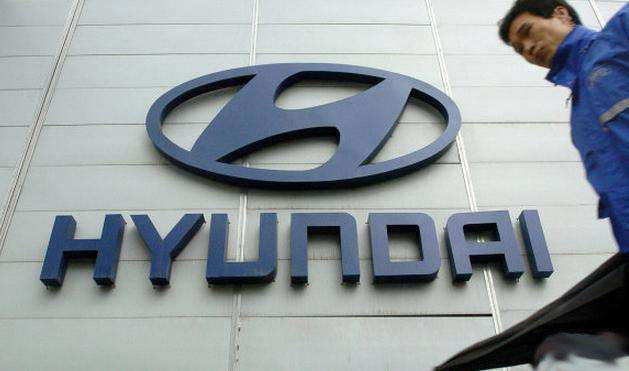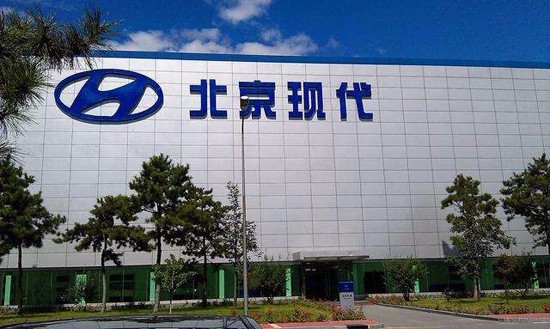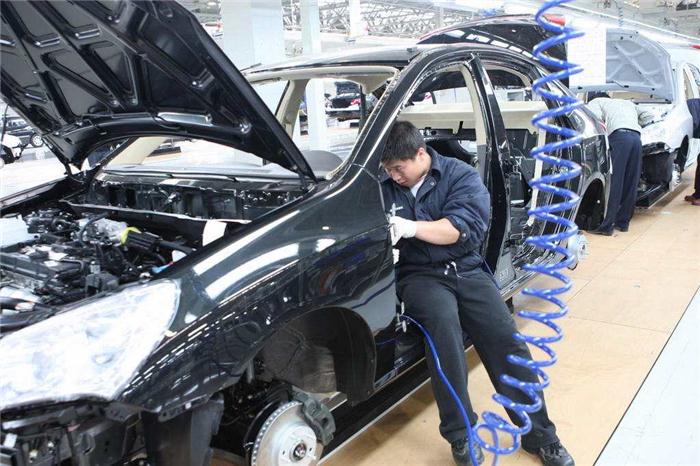The truth behind the suspension of supply from Beijing Hyundai suppliers: The greed of modern Korea
Recently, some media reported that Beijing Hyundai had suspended the production of four Hyundai factories due to arrears of suppliers’ parts and suppliers’ suspension of supply. Although Beijing Hyundai's sales fell sharply in the first half of this year, the headline APP learned from related parties that the real reason behind Beijing’s modern default of suppliers of parts and components was the greed of its modern South Korean wholly-owned parts suppliers, resulting in both parties’ purchase cooperation. Interrupted.
On August 22, a Beijing modern parts supplier issued an official letter stating that due to Beijing Hyundai’s long-term unpaid purchase price, the supplier’s operating funds were insufficient, and the supplier began to stop supplying products to Beijing Hyundai factories on August 22. According to reports, this component supplier is not the only component company that is owed payment by Beijing Hyundai. An official from the Korea Auto Parts Manufacturers Association stated that Hyundai’s suppliers are usually paid two months after delivery, but now some suppliers have not received payment for six months.

As we all know, due to external factors and the overall upward trend of Chinese brands, the sales volume of Hyundai-Kia Group in China began to decline significantly from the beginning of this year, which led to a drop in operating income. In February of this year, Chen Guixiang succeeded Liu Zhifeng as the deputy general manager of Beijing Hyundai. At the launch of the new Elantra new car launch in March, Chen Guixiang, who was interviewed by the media for the first time, said that the primary task of Beijing Hyundai is to further deepen the capabilities of Beijing’s modern local industrial chain system in order to achieve cost reduction and efficiency gains.

The headliner APP learns from related parties that Beijing Modern’s cost-reduction and efficiency improvement strategy has provided comprehensive cost-cutting operations for companies, personnel, sales, markets, and suppliers, but Beijing Hyundai’s major parts suppliers are mostly The South Korean modern wholly-owned enterprises and suppliers did not agree with Beijing Hyundai’s requirement to reduce the purchase prices of parts and components. As a result, the two parties had differences and caused Beijing Hyundai to stop paying suppliers to parts suppliers, eventually developing suppliers’ suspension of supply.
South Korea’s high cost of auto parts has been reported as early as last year. The zero-to-zero ratio is the ratio of the sum of the vehicle parts price to the sales price of the entire vehicle. Under the premise of a certain vehicle price, a car with a high zero-to-zero ratio means higher maintenance costs. In October last year, the China Insurance Association and the China Association of Automobile Maintenance Industry jointly issued the Auto Zero Ratio Index. Among them, the two major joint venture brands of Hyundai-Kia Group in China, Dongfeng Yueda Kia and Beijing Hyundai, a number of products, automotive zero-to-total ratio coefficient rose by the front, including Dongfeng Yueda Kia two products ranked in the top two gain list. As a result, the price of parts and components has risen sharply since last year.

“The Hyundai-Kia Group does not require how much money the two joint ventures can make in a year. They mainly look at the sales figures. As long as the sales figures go up, even if the loss does not matter, because Hyundai Motors has already made huge profits from their wholly owned parts systems. In the past few years, joint ventures in China, including the German and Japanese companies, have all changed parts supply systems in order to reduce costs and increase competitive advantages. There has always been a dispute surrounding the supply system of Korean automotive parts." The person indicated to the headline APP that, therefore, when Beijing Hyundai reduced the purchase prices of parts suppliers, the suppliers appeared to be in disunity.
The reason why the supplier stopped supplying Hyundai to Beijing is that the main reason is that South Korea’s modern wholly-owned parts suppliers are too greedy to ignore the costs and efficiency of the joint ventures. Forcing the contradictions between the two sides to intensify, Hyundai and Kia want to re-emerge in the Chinese market and reconfigure the supply system, we must break Korea's modern profits monopoly."
The headline APP understands that the outbreak of this modern Kia storm only involved a few parts of individual models, which has little impact on Beijing's modern main production operations. Forcing Beijing Hyundai to make such radical confrontation choices shows that the contradictions between China and South Korea have reached a critical point.
Blind Flange,Custom Steel Blind Flange,Stainless Blind Flange,Plate Flange
Jiangyin Senoy Trade Co.,LTD , https://www.senoyflange.com